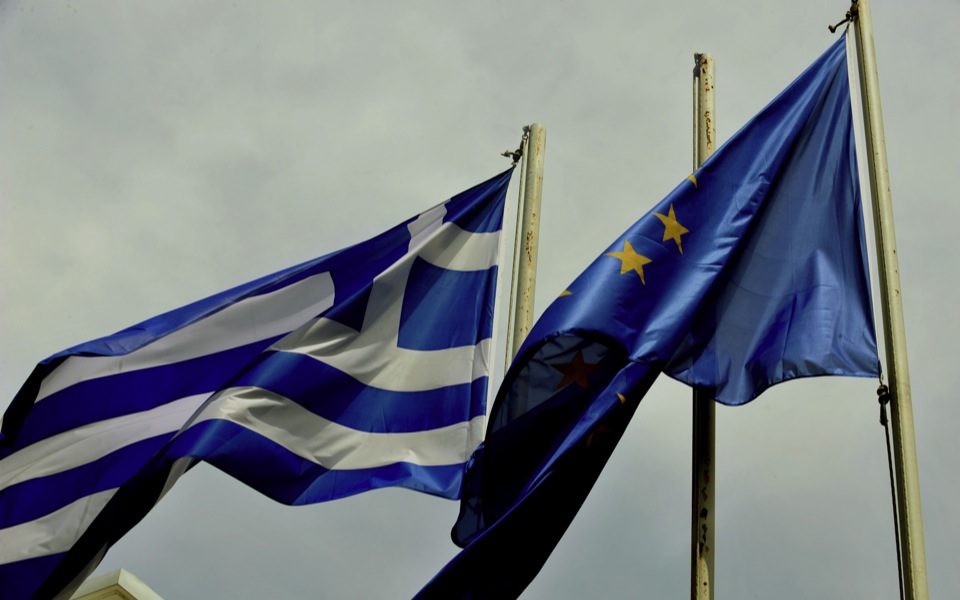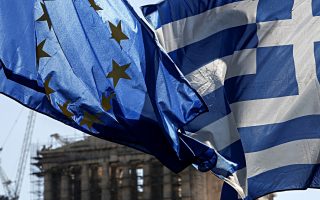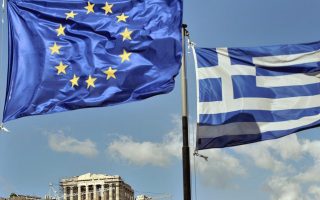Greece and lenders in final push to seal new bailout

Greece and its international creditors sought to put final touches to a multi-billion euro bailout accord on Monday to keep the country financially afloat and meet an important debt repayment to the European Central Bank within days.
Germany set out "strict" conditions for further aid and said it would be sensible to link the size of the first tranche to Greece's progress in carrying out reforms, a reflection of worry around the euro zone that Athens might not do as promised.
Greece is hoping to wrap up the deal for 86 billion euros ($94 billion) in fresh loans by Tuesday so it can get parliamentary and other approvals for aid to flow by August 20, when a debt repayment to the ECB is due.
After lengthy negotiations on Sunday and Monday, Greek
Finance Minister Euclid Tsakalotos said talks were going "quite well" and was optimistic that an agreement will be reached soon.
"I don't know if it will be tomorrow morning, but soon means soon," Tsakalotos told reporters. The European Commission also said a deal could be reached within August, "preferably before August 20."
An agreement would mark the end of a painful chapter on bailout talks for Greece, which fought against austerity terms demanded by creditors for much of the year before accepting a deal under the threat of being bounced out of the euro zone.
A senior Greek government official said dealing with a mountain of non-performing loans in the banking sector remained a sticking point. Athens wants to set up a "bad bank" to handle this, while creditors want non-performing loans bundled and sold to distressed asset funds.
Officials said the two sides had also yet to agree on setting up a sovereign wealth fund in Greece designed to raise 50 billion euros from privatisations, three-quarters of which would be used to recapitalise banks and to decrease debt.
The size of the bailout is also an issue. Germany's Handelsblatt newspaper reported that the IMF believes Greece needs a bigger bailout worth 90 billion euros.
Greek banks could get an initial capital injection soon after a bailout deal is clinched, as much as 10 billion euros, even before the ECB completes a stress test, a euro zone official said on Monday.
The official said a test may not be finished before October but that it was recognised that Greek banks need urgent capital to normalize their operations.
In a symbolic move aimed at appeasing an austerity-weary public, Tsipras called on Monday for the immediate tabling of a bill to scrap tax breaks for lawmakers and to "rationalize" the wages of ministers and heads of state organizations.
He said the plan was not done at the behest of lenders, "but by the obligation of the political system to not exclude itself from the measures it is taking."
"When abolishing tax breaks for farmers is on the negotiating table, we cannot be indifferent to the tax exemptions which apply to ourselves," Tsipras was quoted by a Greek official as telling his ministers.
German terms
Germany on Monday stressed its wish for "quality before speed" in the negotiations, threatening to slow down the process as it pressed for strict conditions to be linked to aid.
Popular misgivings run deep in Germany, the euro zone country that has already contributed most to Greece's two bailouts since 2010, about funnelling yet more money to Athens.
Germany wants a deal that includes an ambitious budget plan, a credible privatization strategy and a sustainable pension reform, Finance Ministry spokesman Juerg Weissgerber said. "It is sensible – that is our belief – to fix the size of the first payment tranche to the extent of the reforms implemented," he said. "That means strict conditionality for financial help."
Weissgerber said Germany was not involved in the negotiations and would need time after any deal to review the results. "We are ready to do this examination quickly this week if necessary, but quality comes before speed," he said.
Greek officials have said they expect the bailout accord to be approved by Greece's parliament on Wednesday or Thursday and then be vetted by the finance ministers of the euro zone on August 14, paving the way for aid disbursements.
The bailout pact will be voted on in parliament as one bill with two articles — one on the loan agreement and memorandum of understanding and the second on the so-called prior actions that must be completed for aid to be released, another Greek official said. The negotiations began on July 20.
Greek media reported that some of the prior actions included scrapping tax breaks for farmers who now receive subsidized fuel, tighter regulations on individuals owing back taxes to the state, and a gradual increase in a "prepaid" income tax mechanism that asks taxpayers ranging from the self-employed to small businesses to pay lump tax sums on forecast income.
The two sides have agreed to set a budget surplus target before interest payments of 0 percent this year, and expect the economy to shrink between 2.1 and 2.3 percent, a Greek official told Reuters.
[Reuters]





